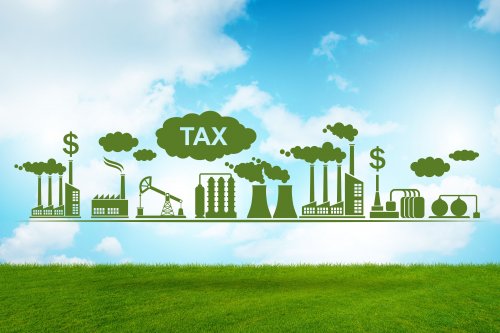China's Ministry of Ecology and Environment has developed a new “carbon footprint management system” that will come into effect in 2027. This initiative provides for the establishment of standards for measuring carbon emissions for approximately 100 key products in the Chinese economy, with a gradual expansion of this list.
This was reported by Reuters.
Initially, the Chinese calculation standards will apply to products with high emissions, such as coal and natural gas, as well as export goods such as steel, aluminum, lithium batteries and electric vehicles.
The Chinese Ministry of Environment hopes to expand the guidelines to 200 products by 2030.
The move shows that China is working to catch up with EU legislation, which according to Ma Jun, director of the Institute of Public and Environmental Affairs in Beijing, already "sets clear rules on measuring and publicizing the carbon footprint of products".
Analysts suggest the calculations could play a key role in China's efforts to cut manufacturing emissions and avoid trade tensions and high import tariffs under the European Union's new carbon tax.
With Europe's Carbon Import Adjustment Mechanism (CBAM) set to come into effect in 2026, countries outside the region have begun to worry about the potential hit to their production.
What is it for?
Analysts say China's move is aimed at preparing domestic companies to calculate their emissions. Establishing such standards will help Chinese manufacturers adapt to new regulatory requirements and improve their competitiveness in international markets. It is also expected to stimulate innovation in green energy and sustainable development.
Also, the new "carbon footprint management system" could be the start of introducing its own rules for low carbon emissions – China's version of CBAM.
The document from China's Ministry of Ecology also states that the country will pay close attention to carbon-related trade policies around the world and promote international harmonization of carbon emission standards.
"It's about measuring [emissions – ed.] in a scientific and fair way," said Ma Jun, whose organization has compiled a database of the carbon footprint of more than 2,000 products in China.
Experts believe that this step can become an example for other countries and contribute to global efforts in the fight against climate change.
In February, EcoPolitic wrote that China was urged to carry out a major reform of the emissions trading system (ETS) in order to strengthen global decarbonization, as well as to prepare for the payment of a carbon tax CBAM. Previously, China launched the Certified Emission Reduction Program (CCER), which allows companies in certain industries to trade their carbon reduction performance after voluntarily participating in reduction measures.





